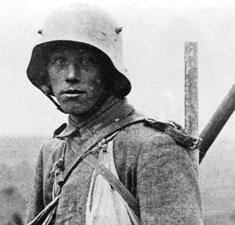Featured Quizzes
User Quizzes
Create Quiz
Data and Charts
Badges and Games
About JetPunk
JetPunk Shop
Dark Mode

Name the War Quiz
Based on the combatants and the years, name the war (or series of wars).
One of these wars is apocryphal
Rate:
Featured Quiz
Last updated: August 27, 2018
You have not attempted this quiz yet.
More quiz info >>
| First submitted | March 16, 2010 |
| Times taken | 177,680 |
| Average score | 56.3% |
| Rating | 4.28 |
3:00
Enter war here:
0
/ 16 guessed
Time Used
00:00
Best Time
00:00
The quiz is paused. You have remaining.
Scoring
You scored / = %
This beats or equals
% of test takers
also scored 100%
The average score is
Your high score is
Your fastest time is
Keep scrolling down for answers and more stats ...
|
New and Popular
Save Your Progress
Copyright H Brothers Inc, 2008–2024
Contact Us | Go To Top | View Mobile Site

On the other hand, the War of 1812 was, indeed, pretty trivial. Though it is an interesting footnote to history that a lot of people don't know about, and again, if you're taking a quiz on wars then it's not beneath mentioning or knowing about. Certainly as significant as the Falklands Wars, Yom Kippur War, Trojan War, etc.
If the American Empire falls, we might say that the beginning of the end was sometime in the 1980s when the country's democratic institutions started being auctioned off to corporations. But in all likelihood even if that happens the country will remain powerful and influential for at least another 50 + years. That doesn't mean you can't look back and figure out when events were set in motion that eventually led to a decline.
1812 was indeed fairly minor. Though it could have ended differently and if it had that would have had pretty major implications, as well. But it didn't.
PS: when I went to school we still called the war of 1812 "Mr Madison's War" after the US president at the time.
And, I'm surprised no one had mentioned this, but the American Revolution also influenced the French Revolution, the latter of which had massive implications. If America hadn't gained independence, I doubt it, or the Napoleonic Wars, would have even happened.
And never forget, they are God's chosen people.
Date 22 May 1455 – 16 June 1487
"Lancaster vs. York
1455-1485
War of the Roses"
made me think of the 30 years war, because the dates are off by 2 years, making it a 30-year gap. :3 Consider changing the date.
Don't worry about calling it the War of Southron Independence though;)
I also forgot how exactly was "Yom Kippur War" called, I knew how it sound, like "Kippur something" but couldn't remind it. Also I knew about Athens vs. Sparta but as well, I forgot how was it called, and probably I would have difficulties with spelling. Well I ended with 8/16 haha.
Overall good quiz. 4/5